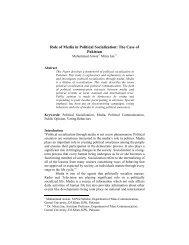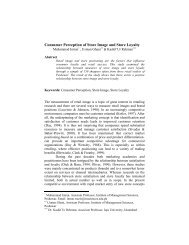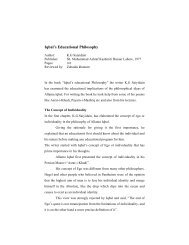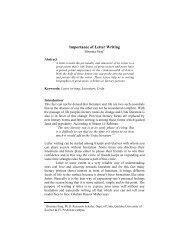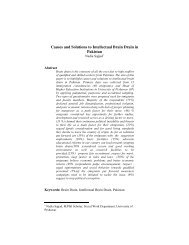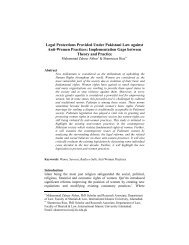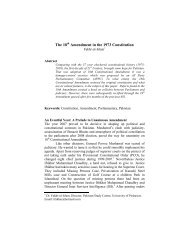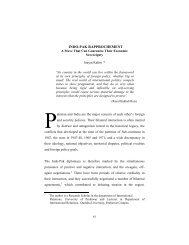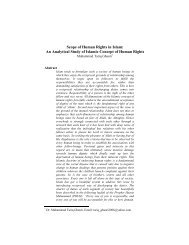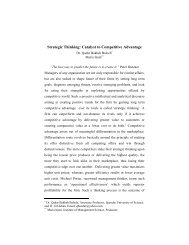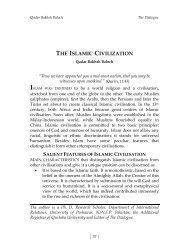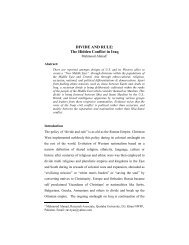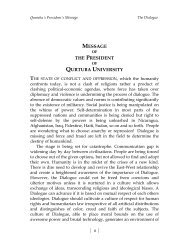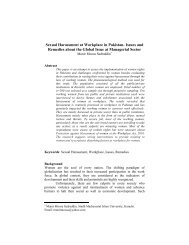COLD WAR POLITICS OF SUPERPOWERS IN SOUTH ASIA Abstract
COLD WAR POLITICS OF SUPERPOWERS IN SOUTH ASIA Abstract
COLD WAR POLITICS OF SUPERPOWERS IN SOUTH ASIA Abstract
You also want an ePaper? Increase the reach of your titles
YUMPU automatically turns print PDFs into web optimized ePapers that Google loves.
throughout the world.” 105 Since Peter the Great, the Soviet Union had engaged<br />
themselves in a relentless struggle for global domination, especially in the<br />
peripheral areas of the world. Their clash of interests was more pronounced in<br />
strategically significant areas such as the Persian Gulf and Indian Ocean. In<br />
this context, the Soviet maintained its de facto suzerainty over the friendly<br />
states of Middle East in terms of economic and military assistance and by a<br />
policy of provoking intra-regional disputes.<br />
Historically, in the nineteenth-century, the European powers and czarist<br />
Russia were active in the Persian Gulf region but Russia, with some<br />
justification, could consider it a local power. In the 1800s Russia’s southward<br />
expansion brought the czarist empire not only to the Iranian border, but also to<br />
the point of direct involvement in Persians Gulf. 106 By the turn of the century,<br />
the region had become a pawn in the Anglo-Russian chess game then being<br />
played out in Asia. The two rivals for regional power signed a convention in<br />
1907 that divided the country into British and czarist spheres of influence and<br />
in 1908 Russian troops crossed the border. Although the founder of the<br />
Bolshevik revolution, Vladimir I. Lenin, renounced all czarist treaties, the<br />
desire to control the warm water ports of Asia never left the minds of Soviet<br />
leaders. 107 Moreover, the Soviets conducted their activities in the region<br />
through political, ideological, economic and military means. This dimension<br />
was linked to Soviet energy and trade concerns with the various countries of<br />
the region. Moscow also moved to establish stable, long-term economic<br />
relationships with major oil exporting countries in order to secure supply .<br />
In the late 1950s the Soviet played the radical card and established their<br />
relations with the ‘nationalist’ and ‘anti-imperialist’ elements in the Arab<br />
world, at the helm of which stood Gamal Abdal Nasser’s Egypt. It was in their<br />
intense hostility to the Baghdad Pact (CENTO) signed in 1955 and designed<br />
as a crucial link in the West’s effort to contain the alleged spread of<br />
99



